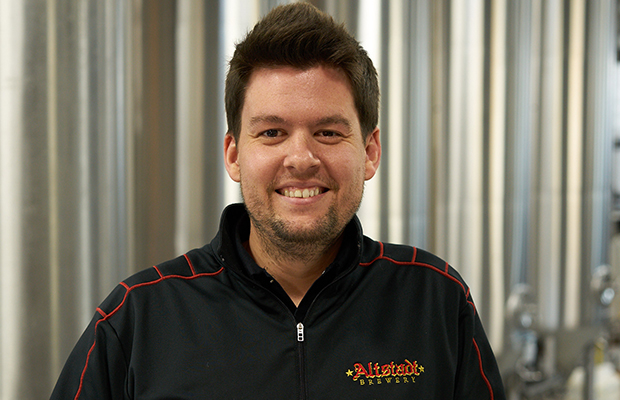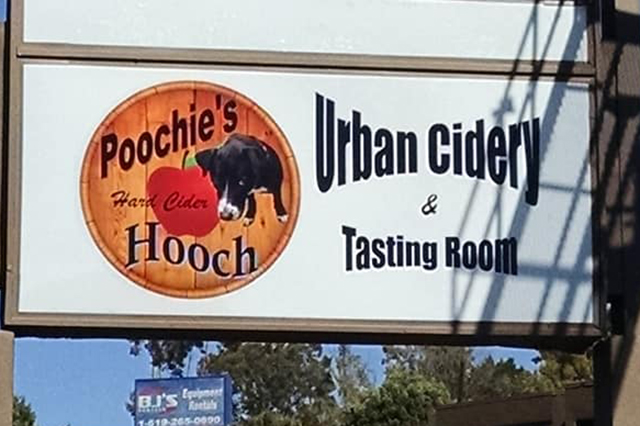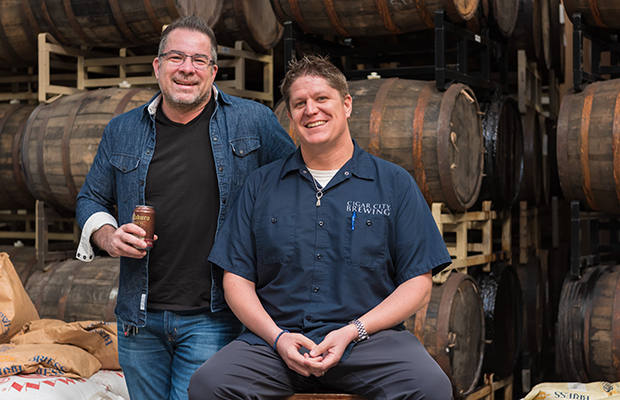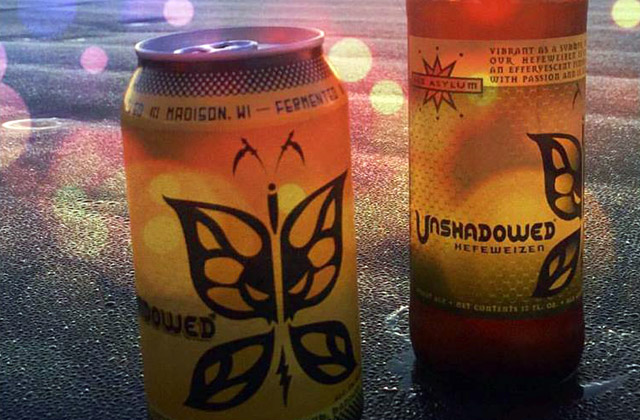
This is a part of a continuing series of Q&As with members of the brewing community from across the U.S.
Brewer Magazine will share business and personal insights from Brewmasters, Head Brewers, Brewing Managers, Sales Directors, QCQA Managers and others each weekend to help you get to know each other better in the industry and learn more to better develop your own brand.
Craig Rowan, Head Brewer, Altstadt Brewery — Fredericksburg, Texas
BREWER: How do you feel your job has had to adapt to the beer market compared to a few years ago?
ROWAN: We have been doing Lagers since we started brewing in early 2017, so we were ahead of the curve when Lagers started their ’comeback.’ The adapting comes with all of these other talented brewers doing great things with German Lagers (and beer in general), so we are always striving to keep our beers to style, consistent, and on-brand because that is what the market is becoming accustomed to. The overall growth and understanding of beer and brewing (and its talent) in America is constantly pushing us to put out a top-notch product.
BREWER: Who is your mentor in the industry and why? What have you learned from them?
ROWAN: My mentor in the industry would be the Brewmaster for Abita Brewing Co., Mark Wilson. In my nine-plus years there, learning how to write a recipe was one of the least impactful things I learned. There are several books you can read on that subject, so anyone can pick that up on their own. The real lesson was how to run a production brewery, and I saw nearly every facet of how to do just that on the production side. Many of the methods and SOPs I learned under him have made their way to Altstadt with great success. But the best lessons came from when I was put into positions where I was allowed to fail (and I did plenty of that). It built a lot of character and really taught me how to look for several solutions with good foresight. I owe nearly all of my success to learning how to deal with tough situations.
BREWER: Can you share a success story that you are proud of in your job or maybe a story of how you learned from a situation that has altered your thoughts on how you do your job now?
ROWAN: This past GABF, the aforementioned old boss was in the building when I accepted two gold medals. How many people get that opportunity? From the beginning of my career (even before I knew it would be a career) I was surrounded by coworkers and managers that either didn’t think I would go far or that I didn’t really belong. That put me in the mindset of constantly wanting to outperform expectations. There is always more to learn, a better way of doing things, more goals to achieve, etc. Those two gold medals were the highlight of my career so far, but I don’t see it as a culmination; I see it as my new floor. The bar is always raised higher.
BREWER: Can you touch on something your brewery has added lately that‘s unique or making your business more successful (it could be equipment, technology or people)?
ROWAN: Tasting panels. While it certainly is not unique to us, a vast majority of breweries don’t use panels. I can’t say enough about how much they add to our brewery and company overall. The best part is anyone can participate. It’s a great way to get a brewer, packaging line worker, bartender, server, accountant all at the same table and learning about beer in general. It’s an amazing educational tool and great for team building. Not to mention the obvious benefits of keeping a consistent product. Any hint of change in the product is quickly snuffed out by our best panelists. And expensive flavor kits aren’t always necessary. There are plenty of homemade off-flavors that can easily be made. For how little the investment is against the plethora of benefits, it’s amazing how few breweries utilize tasting panels.
BREWER: If you had one business strategy that you could implement to better the brewing industry, what would it be?
ROWAN: Quality Assurance. The best recipe ever written won’t be any good without making sure every step of the process has been done correctly and in the proper environment. One mistake could find its way to a customer and that customer is off of your beer, and possibly all craft beer forever.






2 Trackbacks / Pingbacks